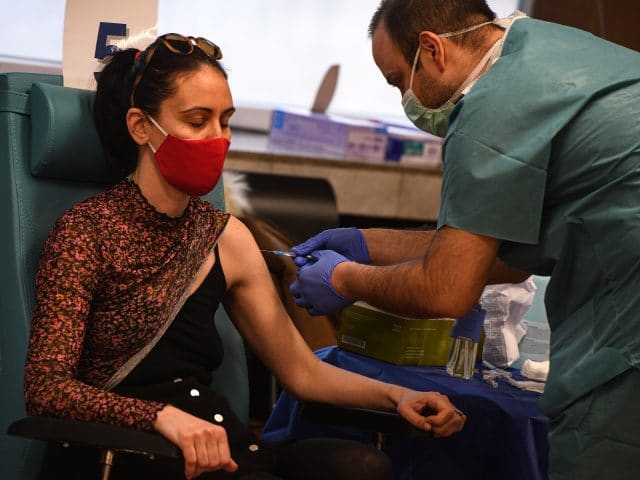Bulgaria May Bin Unused COVID-19 Jabs as Vaccination Falters

If the pace of COVID-19 vaccination in Bulgaria does not speed up, the country will have to scrap unused vaccines that expire on August 31, Professor Krassimir Gigov, head of the National Vaccination Council, told Bulgarian National Television on Monday .
According to Gigov, while 4.6 million doses of different brands have been distributed, only 1.8 million have been used. The expiry date is close for those jabs that arrived in late 2020 or early 2021.
Gigov’s warning come as vaccination continues at slow pace; usually only 10,000 to 15,000 injections are given out daily. Bulgaria is the slowest country in vaccinating its population in the EU.
Contributing factors have been the chaotic rules in place around the start of the mass vaccination, complicated logistics around the distribution of jabs to smaller towns as well as notorious high levels of popular distrust in vaccines, fueled by conspiracy theories.
Research published by the polling agency Gallup on January 12, at around the first phase of the inoculation campaign, found that 46 per cent of Bulgarians would not want vaccination.
“People’s willingness to be vaccinated has faded as infections have receded, but let’s remember what happened last winter,” said Gigov, referring to the spike in fatalities and overloaded hospitals.
He did not clarify whether the endangered doses belong to a certain brand. Bulgaria has been working with Pfizer/BionNTech, Moderna and AstraZeneca, which was the main supplier to the country in the first months of 2021. “There’s a psychological issue; there were queues of people wanting to get vaccinated when supply was scarce, and less interest when there was enough in reserve,” he noted.
Gigov highlighted that the media’s vaccination campaign would not reach those who are not following any media outlets: promoting vaccines also remains a struggle in marginalised communities. According to the Health Ministry on July 2, only 10 per cent of Roma in Bulgaria are vaccinated.
Previously, officials hoped 75 percent of the nation would be inoculated by late spring or early summer. In April, former Health Minister Kostadin Angelov still saw reaching “herd immunity” by June as realistic. However, as of July 5, only 820,975 people, less than 15 per cent of the population, have been vaccinated with both doses, while 25 per cent have received one dose.
On Sunday, caretaker Health Minister Stoycho Katzarov told TV he was less worried about the quantity of jabs that will expire by the end of August, but sees vaccination as the only way forward.
Despite other measures, waves of infections are coming back and the health system in Bulgaria remains in need of serious reform. “People have a negative attitude towards politicians and then this distrust gets reflected in the issue with the vaccines, when politicians talk positively about them,” Katzarov told bTV.
Katzarov will be in his post for only one more week as, on July 11, Bulgaria will go to another round of elections after the inconclusive polls in April.
Although the country was hit heavily by infections and deaths in the winter of 2020-2021, the pandemic has been marginal in discussions ahead of the elections, with no party producing a detailed strategy on how to speed up the vaccination rollout.
On June 3, Katzarov said that unused doses might be transferred to countries in the Western Balkans, however, this has not been done. The previous cabinet made similar moves in December and contemplated supplying North Macedonia with doses; this idea also failed to catch on.
In contrast, Romania, also experiencing an excess supply, sold 1.17 million doses of Pfizer/BioNTech to Denmark, the Danish Health Ministry announced on June 29.


